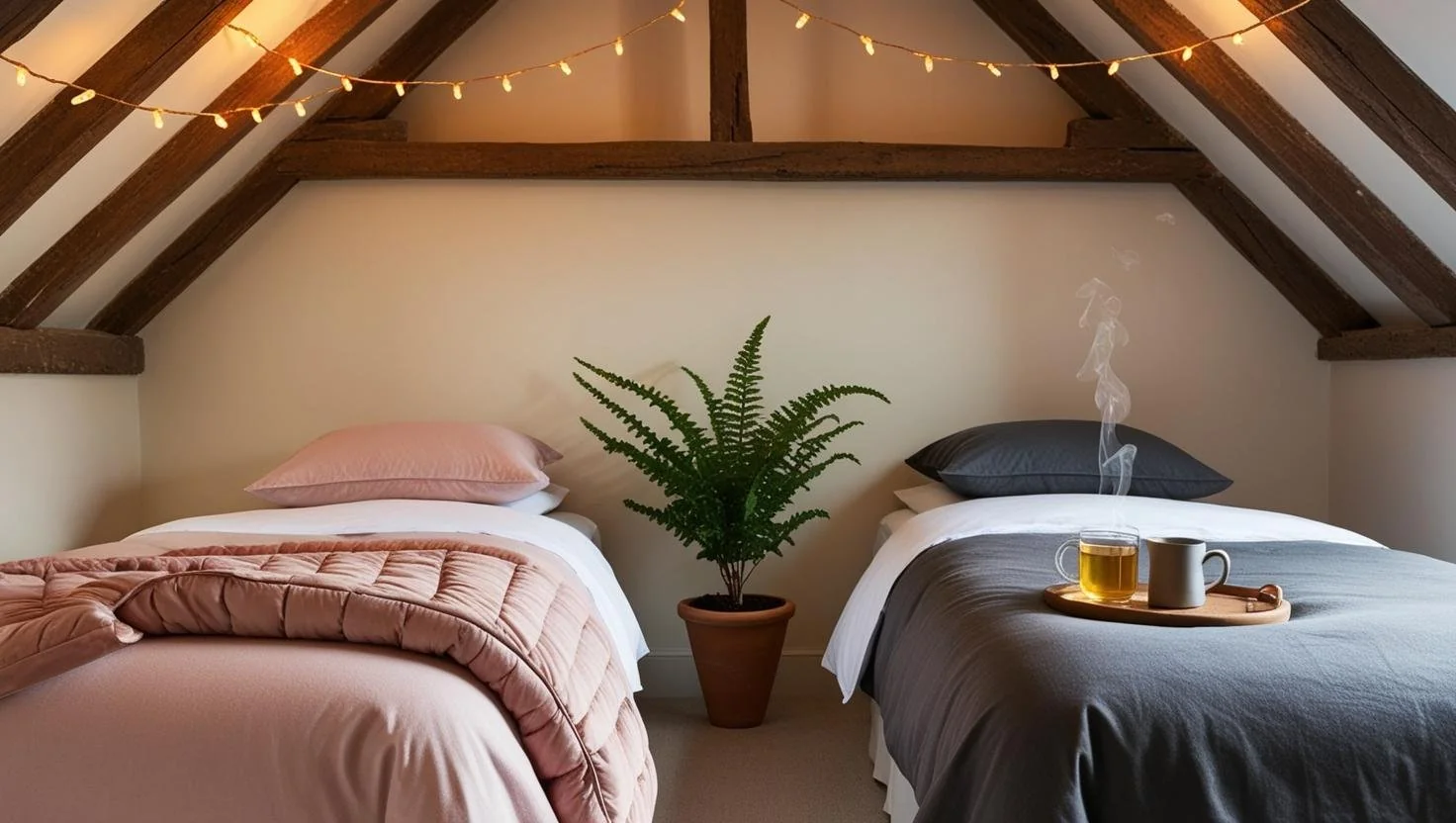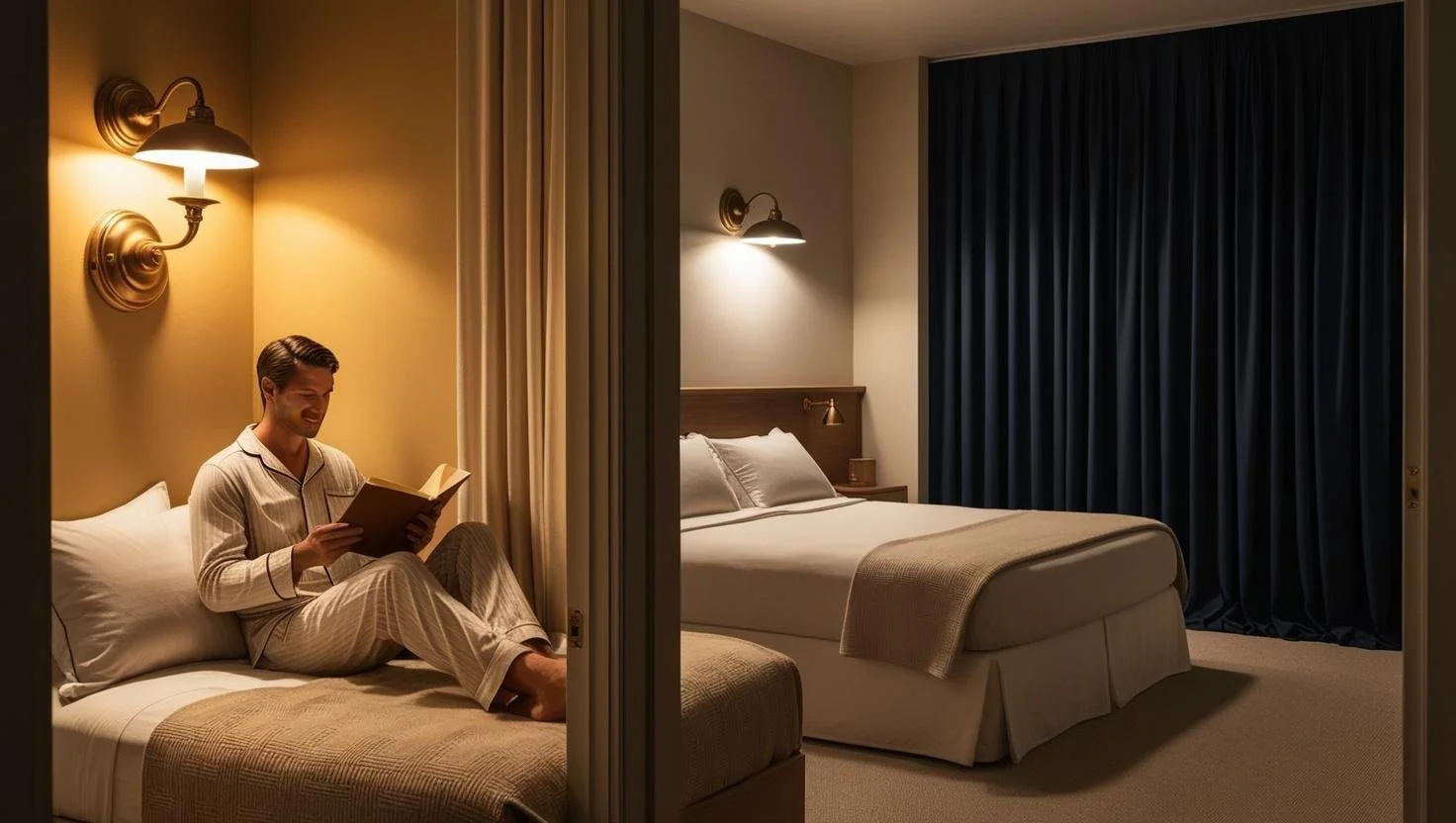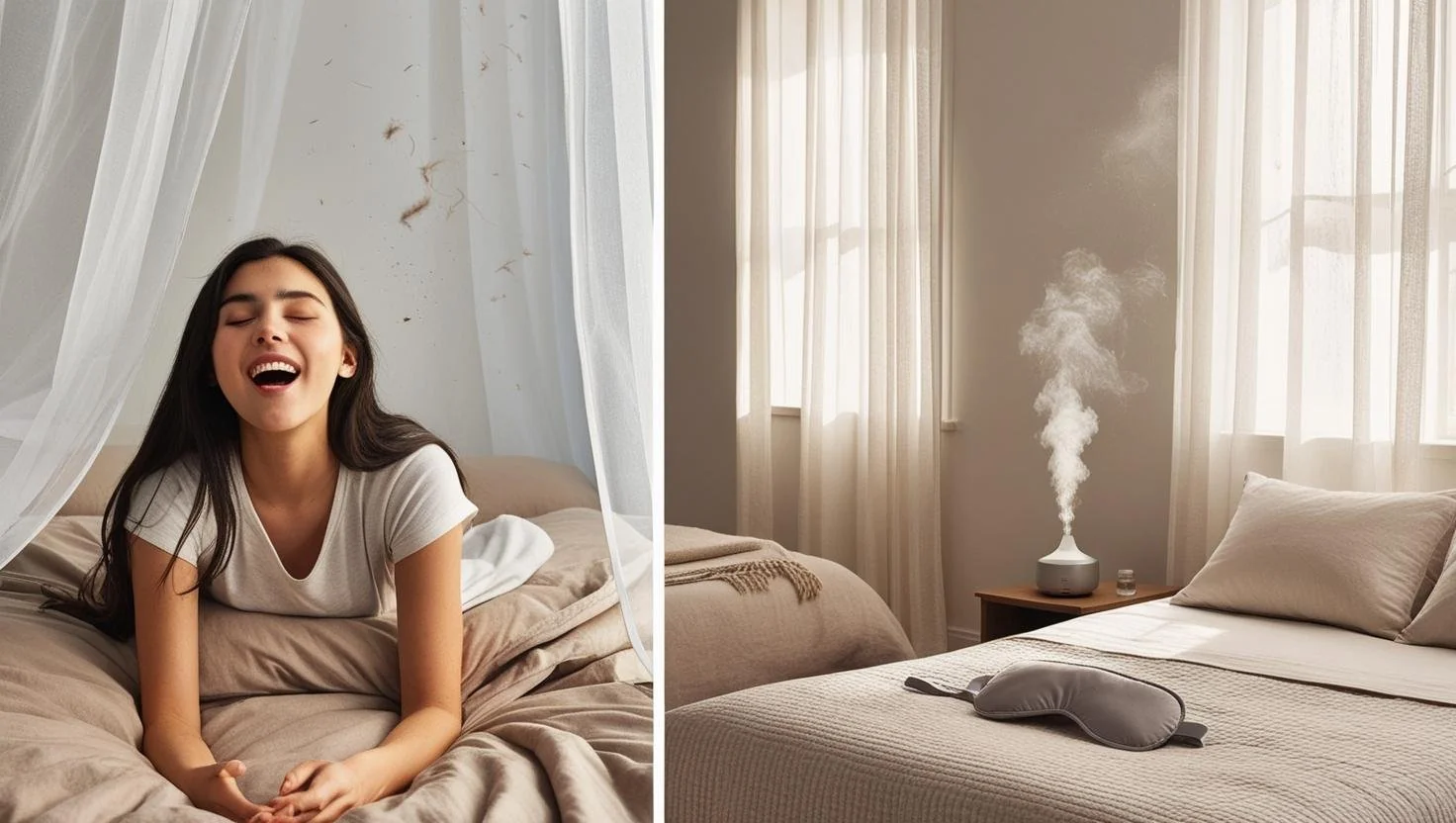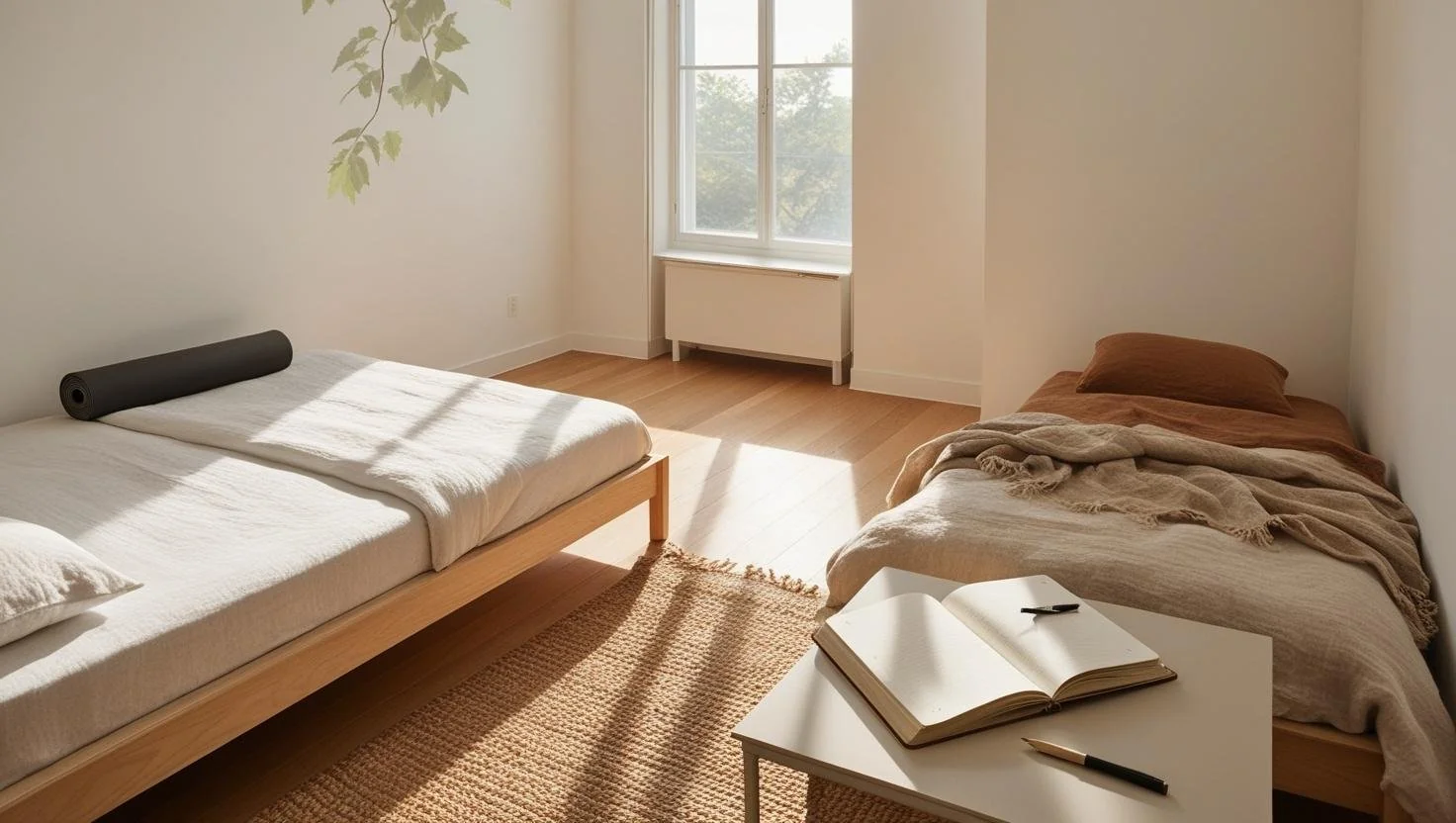Reset Circadian Rhythm: Sleep Divorce for Better Rest
If you’re trying to reset circadian rhythm, sleeping separately—aka “sleep divorce”—can remove nighttime disruptions, align your sleep-wake timing, and improve mood, communication, and overall well‑being. This guide explains why separate sleep helps, how to try it safely, and what to expect—while keeping your relationship strong.
Key Takeaways on Resetting Circadian Rhythm
- Separate sleep reduces disturbances so you can reset circadian rhythm with consistent bed and wake times.
- Better rest often leads to better communication, fewer conflicts, and more energy as a couple.
- Control over light, noise, and routines makes it easier to build healthy sleep habits.
- Start with a short trial, set expectations, and pair solo sleep with intentional connection time.
- Use supportive tools from our 10 Sleep Hacks and Sleep Science & Technology guides.

1. Why More Couples Are Embracing Sleep Divorce
Summary: Many couples sleep better apart—not to create distance, but to protect rest so the relationship thrives.
Let’s be real—sharing a bed doesn’t always mean sharing quality sleep. Snoring, mismatched schedules, blanket hogging… all of it can leave you feeling drained. Instead of powering through, many couples are choosing to sleep apart, not out of distance, but as a way to recharge and reconnect.
Dr. Wendy Troxel, a behavioral scientist, puts it best: sometimes couples sleep better separately. And better sleep? It leads to better communication, fewer arguments, and more energy to actually enjoy each other (psychwire.com).

2. Reset Your Sleep Rhythm with a Little Space
Summary: Separate sleeping spaces remove interruptions so you can keep a steady schedule and truly reset circadian rhythm.
Your circadian rhythm—that natural internal clock that tells you when to sleep and wake—can get thrown off by inconsistent habits or interruptions. To help reset circadian rhythm, you need calm, consistency, and room to breathe. That’s where sleep divorce shines.
Let Your Body Set the Pace
Answer first: In your own space, you can choose bed and wake times that match your biology without a partner’s alarms or movements.
When you have your own space, you can go to bed and wake up at the times that feel right for you. No being jolted awake by a partner’s alarm or struggling to fall asleep through their tossing. You get the quiet, consistent sleep your body craves.
Keep Nights Peaceful and Predictable
Answer first: Control light, wind‑down routines, and noise to build the habits that reset circadian rhythm reliably.
Natural light during the day, a wind-down routine at night, and freedom from distractions—these are the building blocks to reset circadian rhythm. Sleep divorce gives you more control over your environment, making those healthy habits easier to keep (mudita.com).

3. Enjoy Surprising Wellness Perks
Summary: Higher‑quality, uninterrupted sleep supports mood, immunity, and relationship harmony.
- Deeper sleep: Fewer disturbances mean more restorative rest.
- Better moods: You wake up refreshed, not resentful.
- Less conflict: No more arguing over bedtime habits.
- Healthier immune system: Consistent, quality sleep strengthens your defenses.
For more tips, check out the Ultimate Sleep Hack or learn how to Sleep Like a Pro.
4. Break the Stigma and Strengthen Your Bond
Summary: Sleeping apart can be a loving, strategic decision—keep intimacy with intentional connection time.
Some people hear “sleep divorce” and panic—like it’s a sign of relationship problems. But that couldn’t be further from the truth. For many couples, it’s actually the opposite: a thoughtful choice that strengthens connection.
Stay close by building in cuddle time, shared meals, or late-night chats before you each retreat to your cozy corners. It’s not about creating distance—it’s about showing up rested and fully present for each other.

5. Try It Out: Your First Steps
Summary: Start small, communicate clearly, and build a sleep sanctuary that supports your goals.
- Start the conversation: Be honest and open about your needs.
- Do a test run: Try sleeping apart for a few nights and see how you feel.
- Create a sleep sanctuary: Explore our 10 Sleep Hacks or dive into Sleep Science & Technology.
- Keep the love flowing: Balance solo sleep with plenty of shared connection.
You might also enjoy our Genius Sleep Fixes or learn how to Say Goodbye to Insomnia with easy lifestyle tweaks.

FAQ
- Does sleeping separately really help reset circadian rhythm?
- Yes. Reducing awakenings and keeping a predictable schedule supports your internal clock, making it easier to fall asleep and wake naturally.
- Is a “sleep divorce” bad for relationships?
- No. Many couples report better communication and less conflict when they’re well‑rested—provided you maintain intentional time for connection.
- How long should I try sleeping separately?
- Start with a 1–2 week trial. Track how you feel, then adjust frequency or logistics based on your results and your partner’s feedback.
- What if my partner still wants to share a bed?
- Consider compromise options: split blankets, larger mattress sizes, or alternating separate nights. The goal is better sleep for both of you.
Final Thoughts
At the end of the day, sleep divorce isn’t about growing apart—it’s about giving yourself (and your relationship) the gift of rest. If syncing back with your natural rhythm sounds like a dream, separate sleep might be the refresh you didn’t know you needed. You’ll wake up feeling clearer, calmer, and more connected—and that’s a win for everyone.
Prioritizing your sleep isn’t selfish. It’s self-care, and it might just be the smartest decision you make all year.
Related reading from Cozy Bed Quarters
- Optimize Your Sleep Cycle to Wake Up Refreshed
- Create a Nighttime Routine to Overcome Insomnia
- 10 Sleep Hacks That Actually Work – #7 Will Surprise You!
Other reading we found popular























